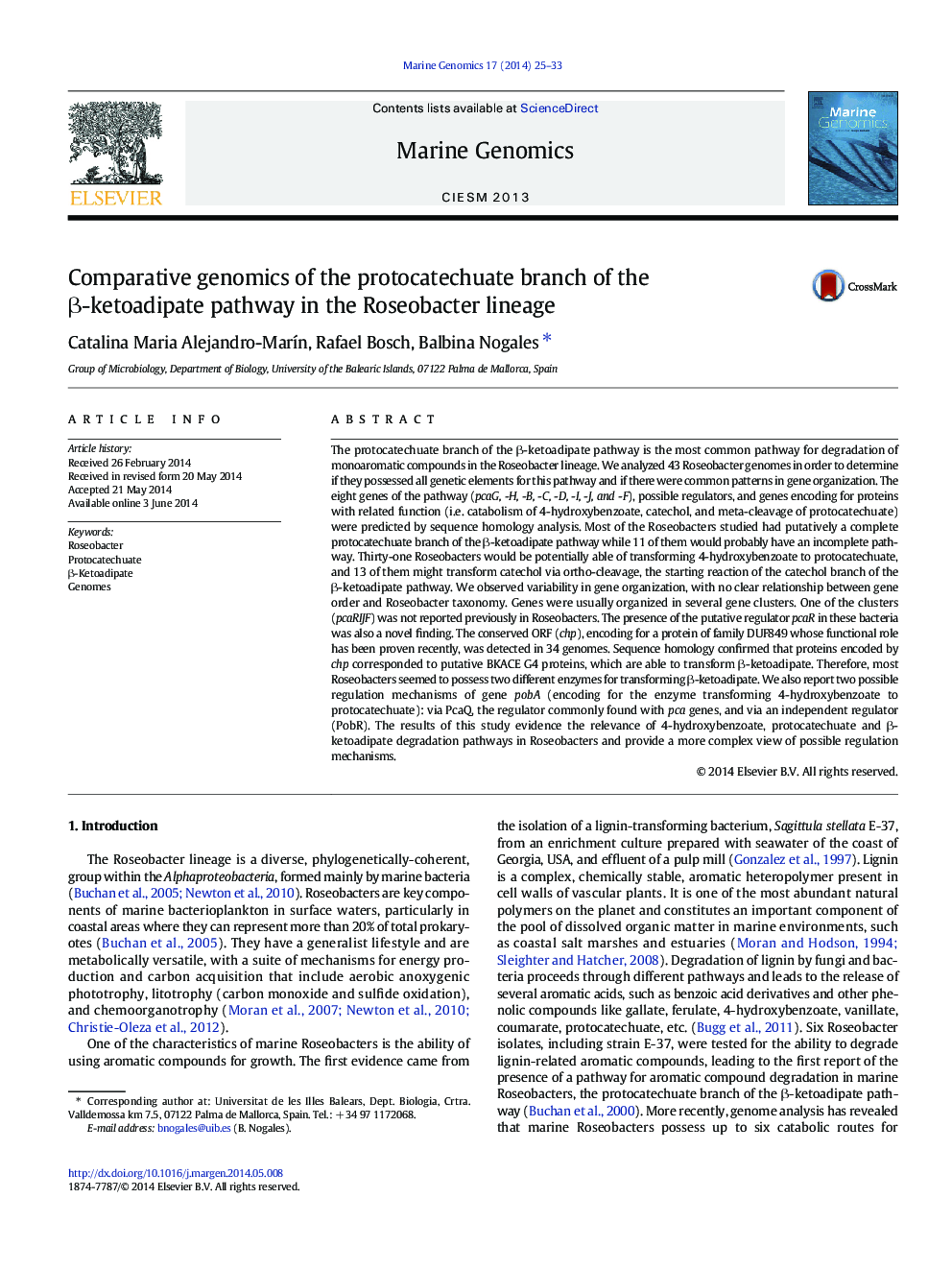| Article ID | Journal | Published Year | Pages | File Type |
|---|---|---|---|---|
| 2058164 | Marine Genomics | 2014 | 9 Pages |
The protocatechuate branch of the β-ketoadipate pathway is the most common pathway for degradation of monoaromatic compounds in the Roseobacter lineage. We analyzed 43 Roseobacter genomes in order to determine if they possessed all genetic elements for this pathway and if there were common patterns in gene organization. The eight genes of the pathway (pcaG, -H, -B, -C, -D, -I, -J, and -F), possible regulators, and genes encoding for proteins with related function (i.e. catabolism of 4-hydroxybenzoate, catechol, and meta-cleavage of protocatechuate) were predicted by sequence homology analysis. Most of the Roseobacters studied had putatively a complete protocatechuate branch of the β-ketoadipate pathway while 11 of them would probably have an incomplete pathway. Thirty-one Roseobacters would be potentially able of transforming 4-hydroxybenzoate to protocatechuate, and 13 of them might transform catechol via ortho-cleavage, the starting reaction of the catechol branch of the β-ketoadipate pathway. We observed variability in gene organization, with no clear relationship between gene order and Roseobacter taxonomy. Genes were usually organized in several gene clusters. One of the clusters (pcaRIJF) was not reported previously in Roseobacters. The presence of the putative regulator pcaR in these bacteria was also a novel finding. The conserved ORF (chp), encoding for a protein of family DUF849 whose functional role has been proven recently, was detected in 34 genomes. Sequence homology confirmed that proteins encoded by chp corresponded to putative BKACE G4 proteins, which are able to transform β-ketoadipate. Therefore, most Roseobacters seemed to possess two different enzymes for transforming β-ketoadipate. We also report two possible regulation mechanisms of gene pobA (encoding for the enzyme transforming 4-hydroxybenzoate to protocatechuate): via PcaQ, the regulator commonly found with pca genes, and via an independent regulator (PobR). The results of this study evidence the relevance of 4-hydroxybenzoate, protocatechuate and β-ketoadipate degradation pathways in Roseobacters and provide a more complex view of possible regulation mechanisms.
